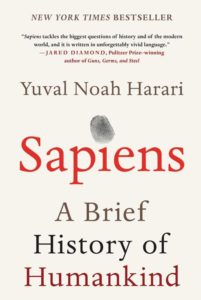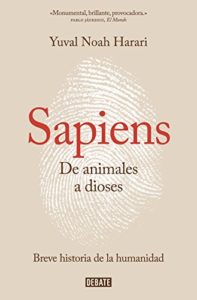When the most important thing is a translator’s skin colour


Firstly a caveat. When I decided to start a blog I felt I didn’t want to enter into political controversy, respecting the plurality of people’s opinions and beliefs. Nevertheless, this week the normally staid world of translation collided with that of identity politics and I wanted to add my grain of salt to the debate as a translator. The opinions below should purely be understood in relation to the matter in question and not in any wider context.
The poet Amanda Gorman was invited to read her poem The Hill We Climb at the inauguration of US President Joe Biden on 20 January (watch here, read here). It was received with huge acclaim and Ms. Gorman became an overnight sensation, with her forthcoming collection of poetry of the same name soon topping Amazon’s bestseller list even before it is published.
It is a remarkable poem that uses direct, unflowery language to express her feelings in a way that everyone can understand, relaying a message that all (well, almost all) can relate to – her hope that it would “represent a moment of unity for our country” as she told The Washington Post before the swearing-in ceremony.
So far so good. However, the poem returned to the news this week for another reason entirely. It seems that Amanda Gorman had chosen the acclaimed author Marieke Lucas Rijneveld to translate her work into Dutch. Ms. Rijneveld is best known for her 2019 debut novel The Discomfort of Evening which won the prestigious International Booker Prize in 2020 and who has since published a collection of poetry and a second novel.
Ms Gorman’s perfectly reasonable request that a fellow young writer should translate her poetry has caused great controversy however, due to the fact that Marieke Lucas Rijneveld is white while Amanda Gorman is black. The Dutch journalist and activist Janice Deul wrote in de Volksrant that Ms. Gorman’s wish represented an “incomprehensible choice, in my view and that of many others who expressed their pain, frustration, anger and disappointment”. Gorman should have chosen a translator who was “unapologetically black”.
In the face of the outrage on social media, Ms. Rijneveld withdrew from the project, so we will never know if her translation would have reached the same heights that Amanda Gorman had with her original poem. There is a wider, rather disturbing aspect, however. Amanda Gorman clearly chose Marieke Lucas Rijneveld for her abilities as a writer, her sensitivity with language and so on. The colour of the latter’s skin obviously wasn’t an issue for her or she would have looked elsewhere.
Ms. Deul’s request that a translator of The Hill We Climb should be “unapologetically black” sets a massively questionable precedent in my view. If, for example, a black Japanese or black Russian translator can’t be found, should that mean that Gorman’s work isn’t to be translated into those languages? Is the colour of a translator’s skin now more important than their professional skills, their literary talent, their sensitivity with the words of others?
The poet, novelist, travel writer and translator Nuria Barrios has been chosen to translate Amanda Gorman’s work into Spanish. She is also Caucasian, “unapologetically” so I assume (to use Deul’s rather odd term). We can only hope that we will be talking about the sensitivity of her rendering (and that of her colleagues around the world) of Ms. Gorman’s poetry rather than her ethnicity, and that those feeling the aforesaid pain, frustration, anger and disappointment have moved on to something else.
Update: This week another translator was removed from the project, this time for the double sin of being both white AND male. Victor Obiols, who has translated Shakespeare and Oscar Wilde into Catalan, was also deemed insufficiently young or “activist”. Obiols had the following to say “If I cannot translate a poet because she is a woman, young, black, an American of the 21st century, neither can I translate Homer because I am not a Greek of the eighth century BC (…) or Shakespeare because I am not a 16th-century Englishman.”
Cuando lo más importante es el color de la piel del traductor


Ante todo, quisiera decir que cuando decidí empezar un blog me pareció importante no entrar en temas polémicas y respetar la pluralidad de las opiniones y creencias de los demás. No obstante, esta vez he visto el mundo sobrio y calmado de la traducción chocar frontalmente contra la política identitaria. Por lo tanto, las opiniones que expreso abajo han de entenderse exclusivamente en relación al asunto en cuestión y no en un contexto más amplio.
La poeta Amanda Gorman fue invitada a leer su poema The Hill We Climb (“La colina que escalamos”) en la inauguración del presidente de la EE.UU, Joe Biden el 20 de enero pasado (ver aquí, leer en español aquí). Fue recibido con gran aclamo internacional y la Sra. Gorman se convirtió en una sensación instantánea. Su colección de poesía con un título homónimo, aún sin publicar, ya se sitúa en lo más alto de lista de superventas de Amazon.
Es un poema extraordinario que emplea un lenguaje directo, sin adornos innecesarios para expresar sus sentimientos de modo que todo el mundo pueda entender su mensaje y todos (bueno, casi todos) puedan identificarse – ella dijo en una entrevista con el Washington Post antes de la ceremonia que esperaba que su poema pudiera “representar un momento de unidad en nuestro país”.
Hasta aquí, bien. Sin embargo, el poema ha vuelto a ser noticia esta semana por un motivo muy distinto. Parece que Amanda Gorman había elegido a la autora aclamada neerlandesa Marieke Lucas Rijneveld para traducir su obra a este idioma. La Sra. Rijneveld se conoce sobre todo por su primera novela La inquietud de la noche que recibió el premio prestigioso International Booker Prize in 2020 y que ha publicado después una colección de poesía y una secunda novela.
La petición perfectamente razonable de la Sra. Gorman ha levantado una gran polémica debido al hecho de que Marieke Lucas Rijneveld es blanca, mientras Amanda Gorman es negra. La periodista y activista neerlandesa Janice Deul escribió en de Volksrant que el deseo de la Sra. Gorman represento una “elección incomprehensible en mi opinión y las de muchos otros que han expresado su dolor, frustración, enfado y decepción”. Gorman debería haber elegido una traductora “indisculpablemente negra”.
Debido a la indignación en las redes sociales, la Sra. Rijneveld se retiró del proyecto, así que nunca sabremos si su traducción habría llegado a la altura de la obra original. No obstante, hay un aspecto algo preocupante que va más allá. Amanda Gorman obviamente eligió Marieke Lucas Rijneveld por sus habilidades como escritora, su sensibilidad lingüística etcétera. El color de la piel de Rijneveld no pudiera haber sido un problema o habría buscado otra candidata.
La solicitud de la Sra. Deul de que la traductora de La colina que escalamos sea “indisculpablemente negra” sienta un precedente muy cuestionable en mi opinión. Por ejemplo, si no se encuentra una traductora japonesa o rusa negra, ¿esto significa que no se debe traducir la poesía de Gorman a estos idiomas? ¿Es el color de la piel del traductor más importante ahora que sus habilidades profesionales, su talento literario, su sensibilidad con las palabras de otros?
La poeta, novelista, escritora de viajes y traductora Nuria Barrios es la elegida para traducir la obra de Gorman al español. También es caucásica, “indisculpablemente” supongo (para usar el término peculiar de Deul). Es de esperar que en el futuro hablemos de la delicadeza de su interpretación (y la de otras traductoras alrededor del mundo) de la poesía de Amanda Gorman en lugar de su etnicidad, y que los que sienten tanto el antedicho dolor, frustración, enfado y decepción hayan encontrado otro escándalo.
Novedad: Ésta semana, se ha quitado otro traductor del proyecto. Victor Obiols, que ha traducido las obras de Shakespeare y Oscar Wilde al Catalán, es culpable del pecado doble de ser blanco Y varón. También se ha dictado que no es suficientemente joven o “activista”. Obiols ha comentado al respecto: “Si no puedo traducir a una poeta porque es una mujer joven, negra, una estadounidense del siglo XXI, tampoco puedo traducir a Homero porque no soy un griego del siglo XIII a. de c. o a Shakespeare porque no soy un inglés del siglo XVI .”















